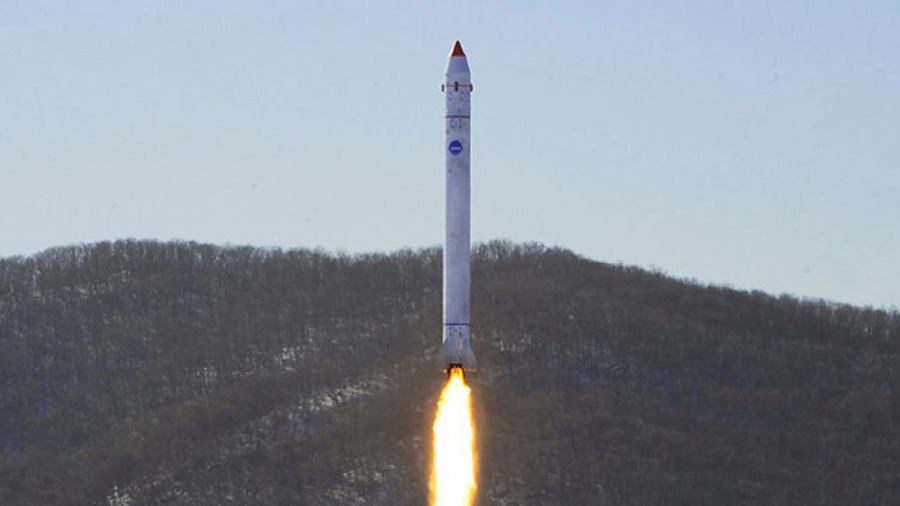North Korea launched a test satellite on Sunday in the final stage of a plan to get a spy satellite into space by April next year, state-run media reported on Monday.
The country's leader Kim Jong Un has previously highlighted the importance of acquiring spy satellites among an array of military capabilities he considers essential to defend against the US and its allies.
South Korea, Japan and the US reported ballistic missile launches from the area of Tongchang-ri in northwestern North Korea on Sunday.
Pyongyang's official Korean Central News Agency (KCNA) released black and white photos showing what appeared to be pictures of Seoul and nearby Incheon taken from space.
'Important' step for spy satellite program
The test launch was conducted with a mock satellite that was carrying several cameras along with a control device, receivers and image transmitters.
The National Aerospace Development Administration (NADA), which ran the launch, called the results "an important success which has gone through the final gateway process of the launch of reconnaissance satellite."
A spokesperson for NADA told KCNA, "We confirmed important technical indicators such as camera operating technology in the space environment, data processing and transmission ability of the communication devices, tracking and control accuracy of the ground control system."
Soo Kim, a security analyst at the California-based RAND Corporation, told the Associated Press that the first images were lacking the quality needed for military use.
"From the images released, the resolution does not appear to be so impressive for military reconnaissance,'' she said, adding, "I'd note, however, that this is probably an ongoing development, so we may see more improvements to North Korea's military reconnaissance capabilities over time."
Pyongyang developing military technologies
Sunday's launch comes amid renewed efforts by North Korea to develop its long-range nuclear missile capabilities.
It conducted a record number of test launches earlier in the year, with some capable of reaching as far as the US mainland in addition to South Korea and Japan.
On Friday, North Korea carried out a missile test with a high-thrust solid-fuel engine which it is believed would enable the country to fire off more mobile ballistic missiles more quickly.
Pyongyang also passed legislation permitting the use of a preemptive nuclear strike in a myriad of scenarios.
The tests have been a cause for concern and condemnation in neighboring South Korea and Japan as well as in the US, but protection from UN Security Council members Russia and China has prevented any retaliatory UN sanctions.










